
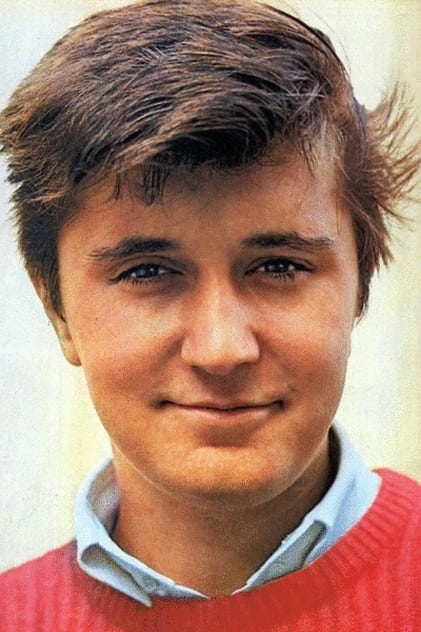
Bobby Solo
Born: March 18, 1945
in Roma, Lazio, Italy
in Roma, Lazio, Italy
Roberto Satti, better known as Bobby Solo (born 18 March 1945), is an Italian singer, musician, and film actor.
In 1964, Solo participated in the Sanremo Music Festival with the song "Una lacrima sul viso" ("A Tear on your Face", written by "Lunero"), but affected by laryngitis, he sang with playback, which disqualified him as that was contrary to the festival regulations. The song, however, became a global hit. It was the first record to sell over one million copies in Italy, and global sales exceeded three million. It was awarded a gold disc.
In the following year Solo won in the festival with the song "Se piangi, se ridi". He participated with the same song in the Eurovision Song Contest and finished in fifth place.
Again in 1969 Solo participated in the Sanremo Music Festival, with the song "Zingara", together with Iva Zanicchi. His last participation in the festival was in 2003 (together with Little Tony), singing "Non si cresce mai".
Source: Article "Bobby Solo" from Wikipedia in English, licensed under CC-BY-SA 3.0.
In 1964, Solo participated in the Sanremo Music Festival with the song "Una lacrima sul viso" ("A Tear on your Face", written by "Lunero"), but affected by laryngitis, he sang with playback, which disqualified him as that was contrary to the festival regulations. The song, however, became a global hit. It was the first record to sell over one million copies in Italy, and global sales exceeded three million. It was awarded a gold disc.
In the following year Solo won in the festival with the song "Se piangi, se ridi". He participated with the same song in the Eurovision Song Contest and finished in fifth place.
Again in 1969 Solo participated in the Sanremo Music Festival, with the song "Zingara", together with Iva Zanicchi. His last participation in the festival was in 2003 (together with Little Tony), singing "Non si cresce mai".
Source: Article "Bobby Solo" from Wikipedia in English, licensed under CC-BY-SA 3.0.
Movies for Bobby Solo...



Title: FF.SS. cioè '...che mi hai portato a fare sopra a Posillipo se non mi vuoi più bene?'
Character: self
Released: January 1, 1983
Type: Movie


Title: Midi Première
Character: Self
Released: January 6, 1975
Type: TV
Midi Première is a French variety show presented by Danièle Gilbert, directed by Jacques Pierre and broadcast from January 6, 1975 until January 1, 1982 on TF1. The program was generally broadcast between 12:15 p.m. and 12:55 p.m., then giving way to the 1:00 p.m. TV news. However, the broadcast schedule could change, depending on the guests, and the setting where the recording of the program was shot. Certain performances by artists who have become cult like the one where Ringo jostles with a demonstrator in interpretation (1977), that of Dalida with the title There is always a song with the soundtrack that does not start, twice, at the right speed (1978), Claude François and his Clodettes, who, in the provinces, are unable to join "the set" in order to interpret his song, the latter being taken by the crowd of delirious fans (summer 1977) . The group Supertramp performed there with the title "Dreamer" on March 8, 1975.

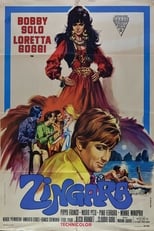
Title: Zingara
Character: Franco Sarresi
Released: August 6, 1969
Type: Movie
Franco, singer in search of success, falls in love with Marisa. But she walks away from him to stay close to her sick cousin.


Title: Man Only Cries for Love
Character: Bobby Solo
Released: July 27, 1968
Type: Movie
Tony and some friends put together a rock band to do some concerts and earn some money. Unfortunately the military service is incumbent, but fortunately the boys will find themselves in the same barracks.

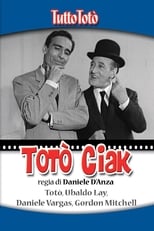
Title: Tutto Totò - Totò Ciak
Character: Bobby Solo
Released: June 7, 1967
Type: Movie
Toto participates in various samples in a study of cinema, first going in a studio where there's shooting a spy movie, then in a western scenario, where he has to play a cruel and uncouth bandit who must challenge him to a duel a cowboy.



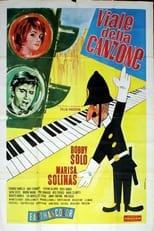
Title: Viale della canzone
Character: Bobby Solo
Released: January 1, 1965
Type: Movie

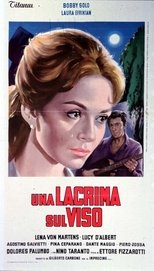
Title: Una lacrima sul viso
Character: Bobby Tonner
Released: January 1, 1964
Type: Movie
The film tells the difficult love-story between Bobby Tonner, an American singer who came to Naples to meet his old music professor, and the charming daughter of the same professor.

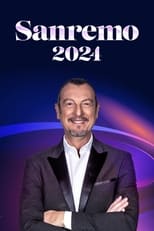
Title: Sanremo Music Festival
Character: Self - Special Guest
Released: January 29, 1951
Type: TV
The Sanremo Music Festival is the most popular Italian song contest and awards, held annually in the town of Sanremo, Imperia, Italy, and consisting of a competition amongst previously unreleased songs. The Festival was the inspiration for the Eurovision Song Contest.
